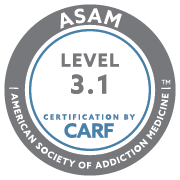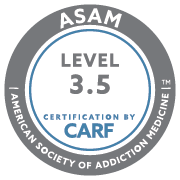Moving towards integrated behavioral health will help us be healthier people and reduce the cost of healthcare.
Earlier this month, someone asked me to describe what I do for a living. Depending on the day, I would describe my job as herding feral cats with un-medicated ADHD; an exercise in futility; or the opportunity to be humbled at how vulnerable and empowered people can be. I am a mental health counselor; a substance use disorder counselor; a teacher; and mentor. Being the consummate professional that I am, I answered the person with “I am a behavioral health provider.” She looked at me as if I said I was an underwater-basket-weaver living on Mars. “What is that?” she asked. I wasn’t sure exactly how to respond. I had to think. What is behavioral health? What/who is a behavioral health care provider?
Just in the last few years, the licensure board that governs two of my licenses changed its name from “Board of Social Work Examiners and Professional Counselors” to the “Board of Behavioral Health.” But, again, what is “behavioral health?” Historically, “behavioral health” was considered to be behaviors that lead to a healthier lifestyle or behaviors that prevented illness. Now, behavioral health tends to be more negative and connotes an unhealthy mental health status. If you’re seeing a behavioral health professional, chances are that there are some things in your life that have gone awry. Rarely do people sit in my office and tell me that life is full of roses and puppies and rainbows—there is a reason I buy Kleenex in bulk for my office. But… what if that wasn’t the case? What if “behavioral health” was a good thing?
SAMHSA (Substance Abuse and Mental Health Services Administration) states that Behavioral Health means “The promotion of mental health, resilience and wellbeing; the treatment of mental and substance use disorder; and the support of those who experience and/or are in recovery from these conditions along with their families and communities.” Okay… that was a mouthful, but sounds much better than “Well, life isn’t going very well, so deal with it. Here are the Kleenex.”
Our current healthcare system tends to focus on the physical health over the emotional health of individuals. In part, that is because “physical” issues are often more measurable and quantifiable. I can easily identify someone as having hypertension because their blood pressure is outside normal limits or that they have diabetes because their blood sugar is outside normal limits. Emotional health, on the other hand, is much more subjective. Despite the DSM (Diagnostic Statistical Manual—the manual published by the American Psychiatric Association that lists all of the mental health diagnosis a person could have) attempting objectivity by describing specific criteria, it is also somewhat open to the interpretation of the clinician or the perspective and situation of the patient. At some point, we’ll be better able to quantify emotional health and it will truly get the credit it deserves, but we’re not there yet. We are getting better. We are getting better at identifying and quantifying the connection between physical and emotional health. According to the Center for Medicaid and Medicare Services (CMS), 50% of Medicaid enrollees have a mental health diagnosis and people with mental health concerns and chronic health conditions (like diabetes or hypertension) have health care costs that are 75% higher than those without both mental and physical health conditions. Specifically, those with diabetes who also have a mental health diagnosis cost 2-3 times more to care for than those with only one condition. People with significant mental health issues die on average 20 years earlier than those without co-occurring disorders.
According to the National Survey on Drug Use and Health Report, people with mental health issues (anxiety, depression, and post-traumatic stress disorder to name a few) are more likely to have chronic conditions such as hypertension, asthma, diabetes and heart disease. If you really want to see how our emotions impact physical health, just take a look at the ACE (Adverse Childhood Experiences) study or read The Deepest Well by Dr. Nadine Burke-Harris. For every ten people in a doctor’s office, seven are there for behavioral health issues. I personally can attest to the connection between emotional health and physical health. I have anxiety disorder (card carrying member since 1996). When my anxiety flares outside of its normal limits, I tend to stop sleeping well, grind my teeth (I will be the first person to chew through my bite guard) and my stomach gets mad at me. If I went to a doctor with those symptoms, they’d tell me to take some antacids, prescribe a benzodiazepine and a sleeping pill. All of those things might help me, but they do not address the underlying issue (my anxiety). What we want to strive for is integrated behavioral health — truly providing holistic care that takes into account the mental and physical health of each patient.
Right now, the United States is moving towards what is called “value-based” reimbursement for healthcare services. This means that, rather than getting paid by the volume of clients I (or any other provider) see, I would get paid based on the value of the care I provide — the more improvement made for my patients, the better I would get paid. This means that, thankfully, as a society we will have to participate in truly integrated behavioral health. If a provider wants to get a better rate of reimbursement for services, they will have to demonstrate that their clients are getting better. As a behavioral health care provider, I will need to be taking into consideration the whole person, addressing mental and physical health in an integrated way if I want to get paid better.
As much as I would like to think that it’s not about the money (pretty sure that in graduate school I was informed that our purpose was to help people, not be making the big bucks…), it is all about the money. As much as I would like to think that my insurance company covers “preventative” care (like my annual gynecological exam) because it cares about my health and happiness, it is because insurance companies have finally learned that catching illness early is actually cheaper to treat (sorry if I popped anyone’s delusion with that last statement). Moving towards integrated behavioral health will not only save our society money, it will actually help us be healthier people.
Additional Sources:
https://online.alvernia.edu/program-resources/behavioral-health-vs-mental-health/
(E. Chesney et al., Risks of all-cause and suicide mortality in mental disorders: a meta-review, World Psychiatry; 2014: 13: 1153-160.)
https://www.samhsa.gov/sites/default/files/samhsa-behavioral-health-integration.pdf





